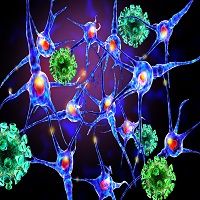Article
Multiple Sclerosis: Patients Make Gains on High-Dose Biotin
Author(s):
High-dose biotin may be an effective treatment for progressive multiple sclerosis, researchers in France found.

High-dose biotin may be an effective treatment for progressive multiple sclerosis (MS), according to recent research. A paper published in Multiple Sclerosis Journal, authored by Professor Ayman Tourbah of the Department of Neurology and Faculty of Medicine at the University Hospital Center in Reims, France, and colleagues describes the study.
The researchers explain, “MD1003 is an oral formulation of high-dose pharmaceutical-grade biotin (10,000 times the recommended daily intake) that recently demonstrated promising efficacy in patients with not-active progressive MS.” They conducted the present study to “assess whether MD1003 could reverse disability progression,” they say.
In order to investigate, the researchers conducted a “12-month, randomized, double-blind, placebo-controlled trial followed by an open-label 12-month extension phase where all patients received MD1003.” Participants were drawn from 16 centers across France. The primary outcome measure was an improvement in Expanded Disability Status Scale (EDSS).
“Between October 2013 and January 2014, 166 patients were screened and 154 were randomized to MD1003 or placebo,” say the authors. Of those, 103 received MD1003 and 51 received placebo. The authors further report that 12 patients in the MD1003 withdrew, six of those due to adverse events (AEs); nine in the placebo group withdrew, seven of those due to AEs.
The researchers say, “A total of 13 patients treated with MD1003 had a reduction in MS-related disability at month nine, confirmed at month 12, compared with none in the placebo arm.” The results were similar after the extension period: “A total of 12 of the 91 patients initially treated with MD1003 had reduced MS-related disability at 18 months, including 10 of the 13 patients who responded during the placebo-controlled phase.”
Although there were improvements in EDSS, the authors note, “More new or enlarging MRI lesions occurred in the MD1003 arm than in the placebo arm during the double-blind phase.” They also report observing that MD1003 appears to interfere with biotin-based tests in the laboratory, which could be a safety concern.
“In conclusion, our data suggest that targeting neuron or oligodendrocyte metabolism with high-dose biotin may represent an effective and safe treatment for patients with progressive MS,” say the authors. They suggest that additional studies should include magnetic resonance imaging (MRI) activity.
Related Coverage:





